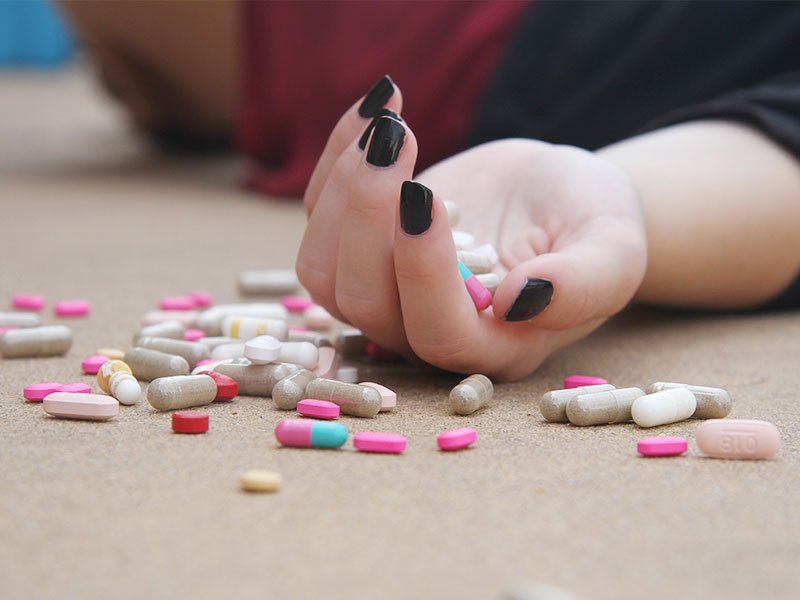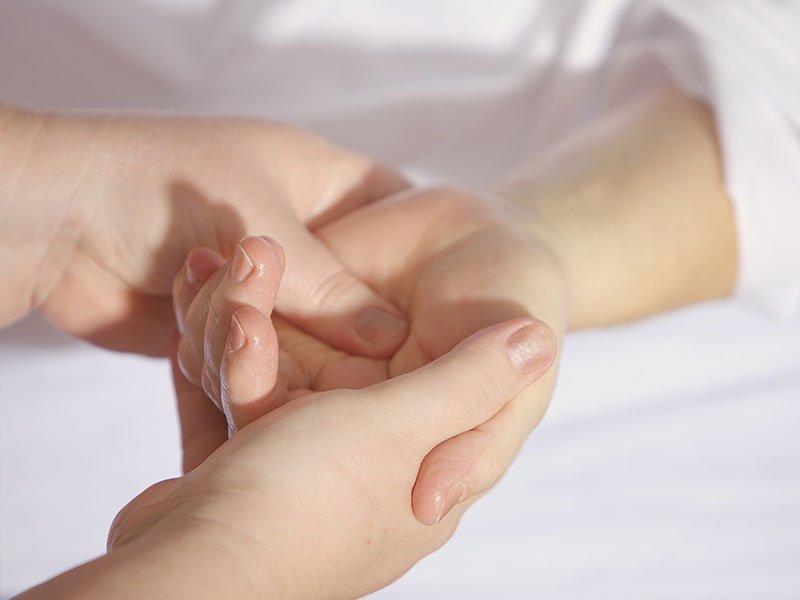about opioids
What opioids do to people
Opioids cause euphoria-feelings of well-being, joy, and intense pleasure. Opioids also reduce or take away
reason to take them.
When you are addicted to opioids and decide to cut back or stop using them, you will go through withdrawal. It can feel like the worst flu you’ve ever had. Withdrawal symptoms may include muscle and bone pain, muscle spasms, cold flashes with goose bumps, vomiting, and not sleeping.
Withdrawal is normal. Your doctor can help. Going through withdrawal without a plan or the aid of your doctor is called going “cold turkey.” Quitting cold turkey may make withdrawal seem much worse.
Taking too many opioids can cause an overdose. People who overdose on opioids breathe very slowly, sometimes so slowly you can’t see them breathe, which can cause them to die.


What are opioids?
Opioids are drugs used
· as a prescription medication to treat pain
· to treat addiction to other opioids
illegally to cause a “high” Doctors order this medicine to help feel less pain after surgery or accidents.
For years, many doctors prescribed Large amounts of pain medicines because researchers said patients in pain could not become addicted to them.
We now know this is not true and that many people became addicted to opioids while taking these medications as they were told.
Opioids include:
Prescription drugs, such as oxycodone (Percocet, Percodan. OxyContin), hydrocodone (Vicodin. Lorcet, Lortab, pethidine (Demerol), hydromorphone (Dilaudid), fentanyl (Duragesic). Tylenol with Codeine and morphine Drugs used to treat addiction to opioids, such as methadone (Dolophine). buprenorphine (Suboxone & Subutex) Illegal drugs such as heroin and or any pain medication that is not yours.

How can I be part of the solution?
You can help
If a person on opioids breathes slowly or stops breathing … Call 911 immediately
·Keep NARCAN (Naloxone) available.
It helps stop overdoses. Anyone can purchase this at a pharmacy and you can get it for free from Olive Branch Ministry … Call-828-291-7023
· Store your opioids in a safe place and out of the reach and view of visitors, children, friends, and family
·Dispose of your pain pills and other medications safely. Use the drug drop boxes at the Police Department
In Gastonia, bring them to the CountyPolice Department or Sheriff’s Office.
The police will destroy the drugs and will not ask any questions.
What an overdose may look like?
People having an overdose may have one or more of these symptoms:
- Do not feel pain – they do not move when you pinch their ear or under their
arm or rub their breastbone or the tip of their nose with your knuckles - Pass out or become unconscious
- Cannot talk even when they are awake
- Breathe very slowly, not deeply, or stop breathing
- A heartbeat or pulse that is slow, not regular or is hard to feel
- A limp body
- A very pale or damp face
- Fingernails and lips that turn blue or purple
- Make choking sounds or a gurgling noise
- Throw up
People overdosing may seem drunk, but don’t let them sleep it off. Take them to the Emergency Department or call 911. In North Carolina the 911 Good Samaritan / Naloxone Access Law says people who overdose, or
persons who get help for them, cannot get in trouble for having small amounts of drugs, drug supplies, or for underage drinking.
The person who calls 911 must give their name to 911, or the police to get this protection. A person who gets medical assistance for someone that
The problem
Addiction and deaths from opioids are a big problem in Gaston County. Often, people will buy and use pills not prescribed for them. “This is against the law and is dangerous. Sometimes people stop using pills and start injecting heroin because it costs less or is easier to get it – Sharing
needles and syringes can cause bad
Older persons who have trouble with their memory, people with breathing problems and those who smoke have a high risk of overdosing.
You also have a high risk if you use opioids with alcohol or benzodiazepines like Valium, Xanax
Tips for preventing overdoses
The best way not to overdose is not to use drugs. If you do, please:
- Know what drug you are taking If you don’t know, call Poison Control at 1-800- 222-1222 or look it up at http://www.drugs.com/ pill_identification.html
- Know the strength of the drug you are taking.
- Know if the drug you are taking is short-acting, long-acting, or extended-release
- Don’t mix your drugs … this includes opioids, alcohol. Benzodiazepines, antidepressants, and cocaine
- If you haven’t used for a while – from a few days to several months – you lose your tolerance to opioids. If you start using again, use a low dose. In NC, people who start taking opioids again after being released from jail or prison are eight times more likely to die from an overdose than the general public
- Don’t use alone!
- Get NARCAN (Naloxone)
Do I have a problem?
If you answer yes to any of these questions, you may have a problem with pain pills:
- Are you using someone else’s medicine?
- Are you getting drugs from someone other than your doctor?
- Are you using medicine for comfort and not your sickness or injury?
- Are you lying about or hiding when you take medicine?
- Are you getting pain medications from several doctors?
- Do your friends, family, or co-workers say they’re worried about you?
- Do you often think about your drugs, your next dose, and how you will get more?
- Are you taking your medicine with other drugs or alcohol?
- Are you taking your medicine how you want and not how the label tells you – for example, taking it more often, more at one time, or by snorting or injecting it?

How do I get help?
Opioid addiction can be deadly and can cause problems with family, friends, and at work. It can lead you to a crime that can put you in jail. But … help and treatment are available.
- Peer Support Services
- Outpatient Counseling and Therapy
- Outpatient Treatment using Naltrexone (Celupan, Vivitrex, and Vivitrol) combined with therapy
- Rehabilitation and Detoxification Facilities
- Opioid Replacement Therapy (methadone. buprenorphine. Subutex)
To talk about your addiction and get help, call Partners Behavioral Health Management.
What you say will not be shared with others… Call 1-888-235-HOPE(4673).
If you inject pain medication or heroin, you can Join the free NC Syringe Access program and get free supplies like syringes to avoid getting HIV and Hepatitis C. You can also get rid of your old needles, cotton, and other supplies with no risk of arrest.
Call Olive Branch Ministry at 1-828-291-7023.
